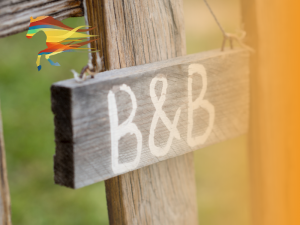


With the pandemic more and more people are looking to buy local and support their local farmers and suppliers. This is because of safety aspects as well as old fashioned local support. Here the article talks through the statistics and areas which are doing well as well as not so well in the pandemic.
While many of us viewed the March national lockdown as a temporary glitch, months on we are now in the grip of a ‘new normal’, with many still working from home, and events and overseas travel still fraught with complication.
While many of us viewed the March national lockdown as a temporary glitch, months on we are now in the grip of a ‘new normal’, with many still working from home, and events and overseas travel still fraught with complication.
Various, if not all business sectors have struggled in one way or another, but there has been a boom in demand for the ‘staycation’, as well as a growing appreciation for farm shops and outdoor pursuits, with many more events – including weddings – being held outdoors.
These are trends that are predicted to remain for some time and they present both opportunities and challenges for UK farmers who are looking to diversify. When supermarkets struggled to keep up with demand at the height of the pandemic, and delivery slots became nigh on impossible to secure, many consumers turned to their local farm shop and found a safe, relaxed shopping experience.
A survey by the Farm Retail Association found that 92 per cent of farm shops saw a “significant” rise in new customers after the lockdown. Some 79 per cent surveyed also said they had introduced a click and collect service because of coronavirus, while another 67 per cent introduced home deliveries.
Farm shops across the UK processed an estimated 1.4 million-plus orders for home delivery or collection within the first two months of the lockdown. By adding new services for customers, 73 per cent of farm retailers said they have either hired extra staff or furloughed fewer employees than expected.
While many businesses, including the glamping and camping industry, have faced a very difficult period – with increased cleaning and reduced capacity presenting challenges – sites have also reported a huge rise in trade, according to Canopy’s John Maddy in a recent NFU Mutual report. Some have been running at 100 per cent occupancy since lockdowns eased.
Shop sales on sites have also increased, with some having to restrict sale of certain items each day. New ventures on some locations have been tried and tested, such as ‘pop up’ pizza and fish and chip suppers, which have seen huge success, giving rise to more investment for next year.
Early reports from business owners confirm a welcome rise in bookings for next year already, with some never having had revenue this early on, which points to a positive future for UK glamping and camping experiences in the UK, Mr.Maddy adds.
As farms face huge uncertainty in the coming months, farm diversification to provide additional revenue streams will become increasingly important, but the new way of life – and the public’s new appreciation for local food and countryside experiences – presents opportunities that could pay dividends for farmers.
At Flame Marketing we offer a FREE marketing consultation to help with any questions about developing a farm diversification.
Article taken from Farmers Weekly